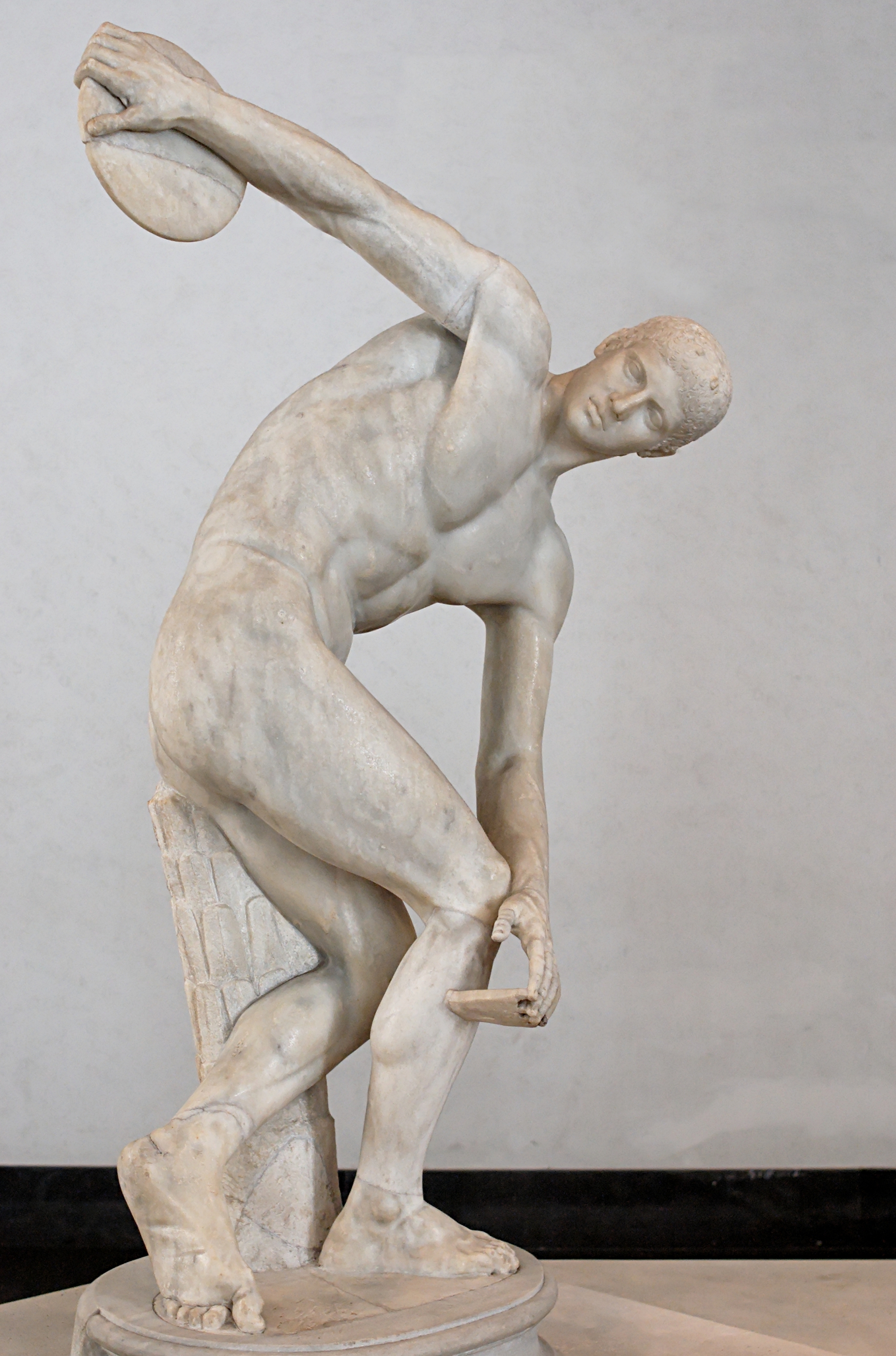
Anastassia's Greece Tours!
Ancient Greece
Ancient Greece is the civilization belonging to the period of Greek history lasting from the Archaic period of the 8th to 6th centuries BC to 146 BC and the Roman conquest of Greece after the Battle of Corinth.
Minoan Crete
The oldest kingdom was the Minoan. It arose on the island of Crete and flourished from approximately the 27th century BC to the 15th century BC. The capital was Knossos, and the most famous king was Minos who is associated in Greek myth with the labyrinth. The Minoans were primarily a mercantile people engaged in overseas trade. Their culture, from 1700 BC onward, shows a high degree of organization. The influence of the Minoan civilization outside Crete manifests itself in the presence of valuable Minoan handicraft items on the Greek mainland. It is likely that the ruling house of Mycene was connected to the Minoan trade network. After around 1700 BC, the material culture on the Greek mainland achieved a new level due to Minoan influence Examples of Minoan art are Minoan pottery, the palace architecture with its frescos that include landscapes, stone carvings, and intricately carved seal stones. Connections between Egypt and Crete are prominent. The Egyptian hieroglyphs served as a model for the Minoan pictographic writing, from which the famous Linear A and Linear B writing systems later developed. Around 1450 BC, the Minoan culture experienced a turning point due to a natural catastrophe, possibly an earthquake. The Minoan palace sites were occupied by the Myceneans around 1420 BC, who adapted the Linear A Minoan script to the needs of their own Mycenaean language, a form of Greek, which was written in Linear B.
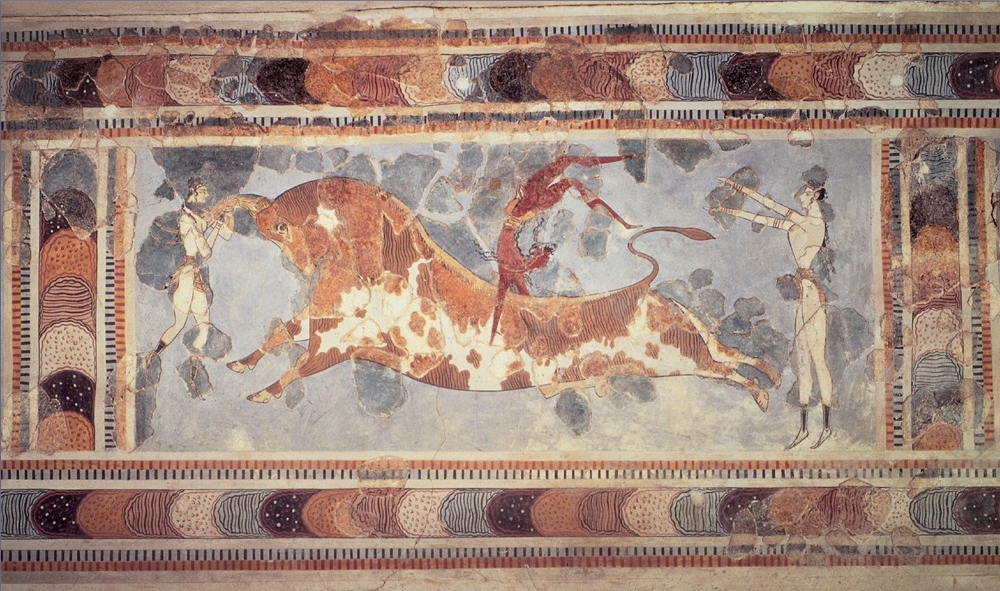
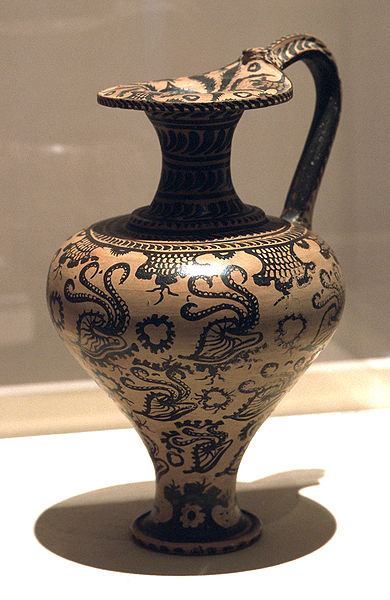
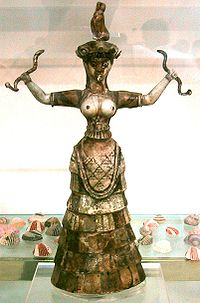
Mycanean
The Mycenaean civilization flourished during the period roughly between 1600 BC, when Helladic culture in mainland Greece was transformed under influences from Minoan Crete, and 1100 BC, when it perished with the collapse of Bronze-Age civilization in the eastern Mediterranean. The last phase of the Bronze Age in Ancient Greece, it is the historical setting of much ancient Greek literature and myth, including the epics of Homer. The major Mycenaean cities were Mycenae and Tiryns in Argolis, Pylos in Messenia and Athens in Attica. Quite unlike the Minoans, whose society benefited from trade, the Mycenaeans advanced through conquest. Mycenaean civilization was dominated by a warrior aristocracy. Around 1400 BC, the Mycenaeans extended their control to Crete, center of the Minoan civilization, and adopted a form of the Minoan script (called Linear A) to write their early form of Greek in Linear B. Not only did the Mycenaeans defeat the Minoans, but according to later Hellenic legend they defeated Troy. Archaeologists have found a great quantity of pottery from the Mycenaean age, of widely diverse styles - stirrup jars, pitchers, chalices sometimes called "champagne coupes" after their shape, etc. The painting of the Mycenaean age was much influenced by that of the Minoan age. Various themes are represented: hunting, bull leaping (tauromachy), battle scenes, processions. Around 1100 BC, the Mycenaean civilization collapsed. Numerous cities were sacked, and the region entered what historians describe as a dark age for its lack of inscriptions. The collapse is commonly attributed to the Dorian invasion.
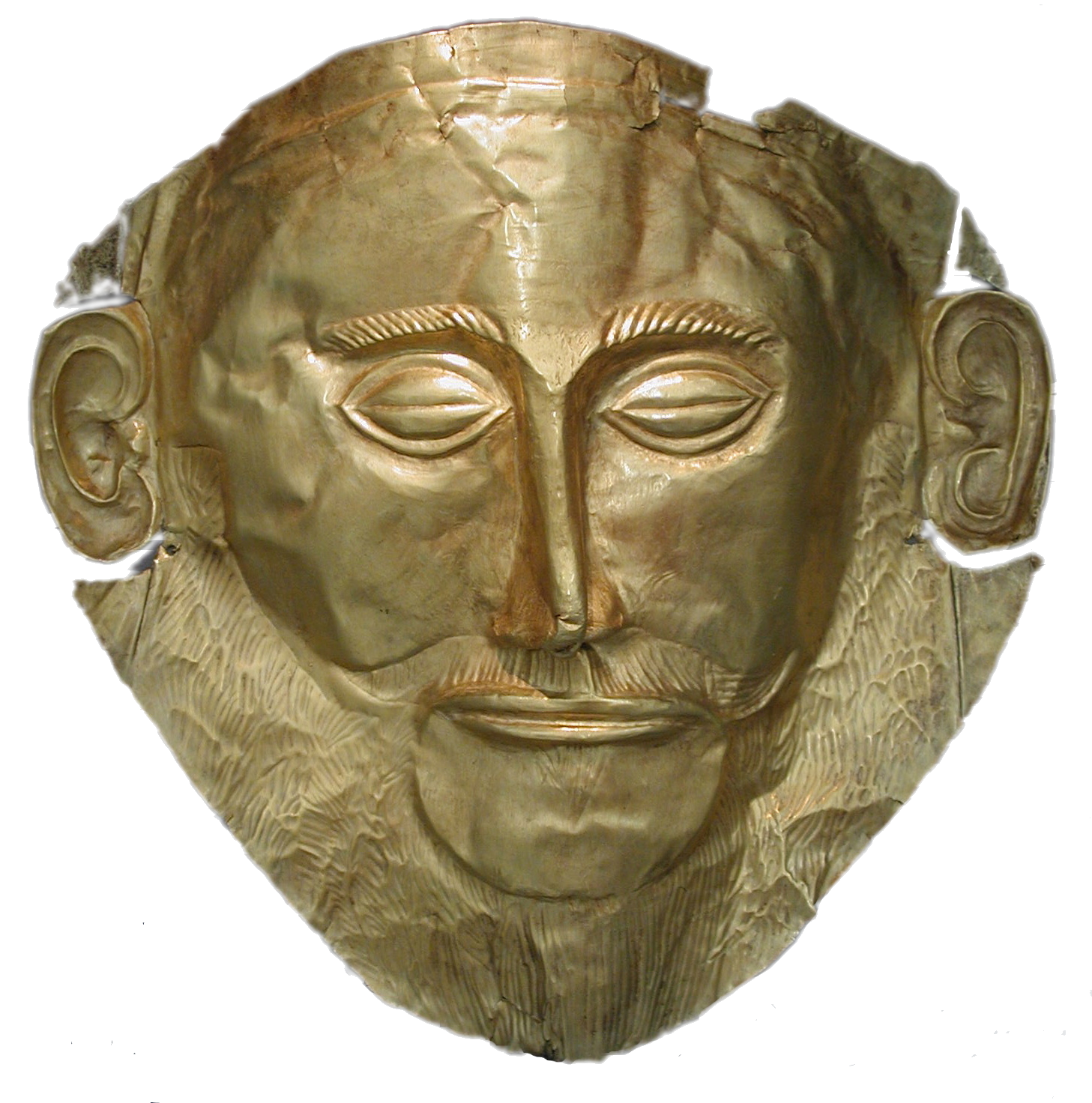

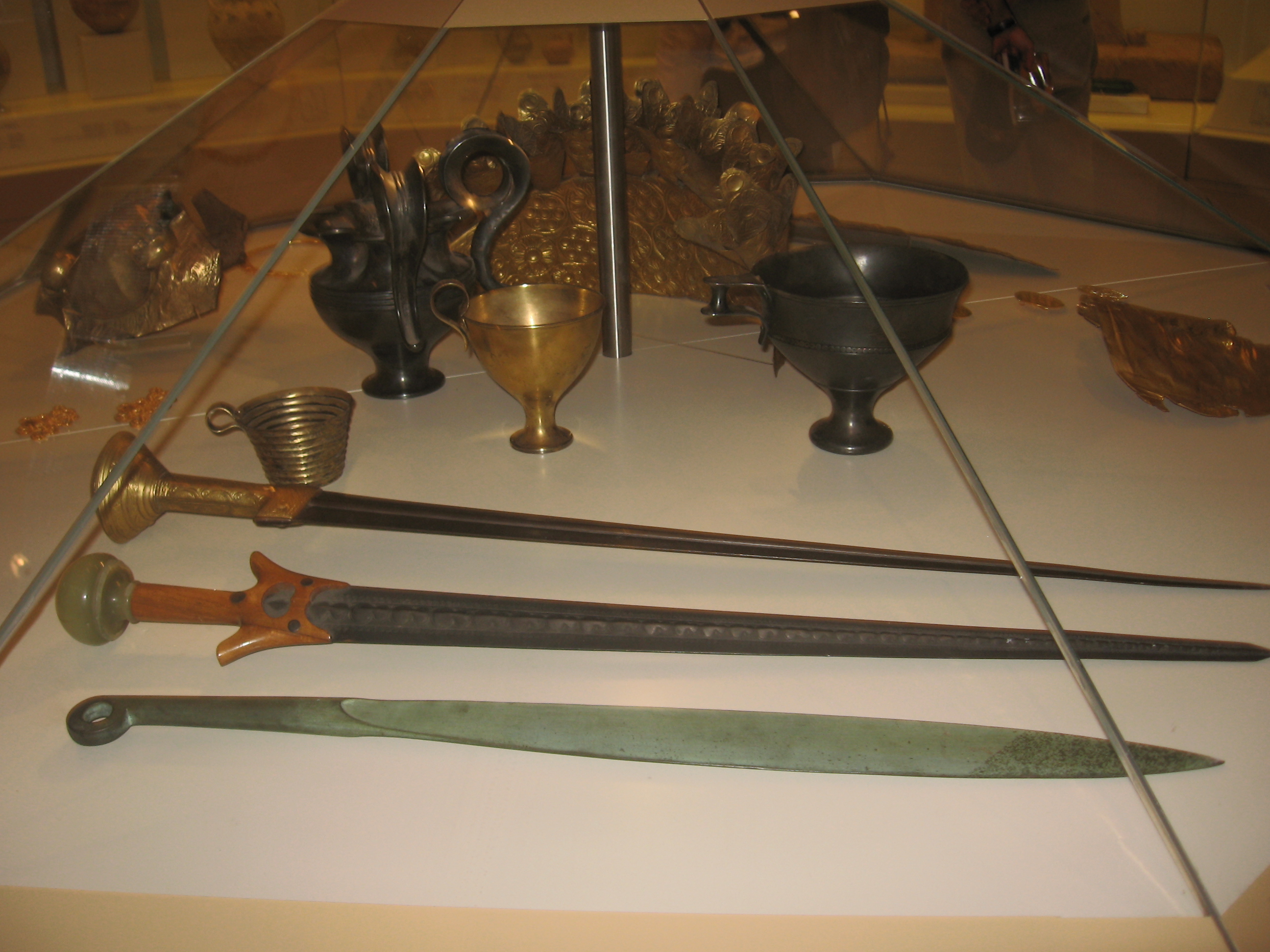
Classical Greece
Classical Antiquity in Greece is preceded by the Greek Dark Ages (c.1100-c.750 BC). The history of Greece during Classical Antiquity may be subdivided into the following periods:
- The Archaic period (c.750-c.500 BC) follows, in which artists made larger free-standing sculptures in stiff, hieratic poses with the dreamlike 'archaic smile'. The Archaic period is often taken to end with the overthrow of the last tyrant of Athens in 510 BC.
- The Classical period (c.500-323 BC) is characterized by a style which was considered by later observers to be exemplary (i.e. 'classical') - for instance the Parthenon. Politically, the Classical Period was dominated by Athens and the Delian League during the 5th century, displaced by Spartan hegemony during the early 4th century BC, before power shifted to Thebes and the Boeotian League and finally to the League of Corinth led by Macedon.
- The Hellenistic period (323-146 BC) is when Greek culture and power expanded into the near and middle east. This period begins with the death of Alexander and ends with the Roman conquest.
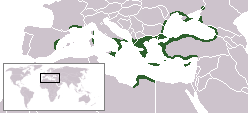
Ancient Greece consisted of several hundred more-or-less independent city states (poleis). Inevitably smaller poleis might be dominated by larger neighbours, but conquest or direct rule by another city state appears to have been quite rare. Instead the poleis grouped themselves into leagues, membership of which was in a constant state of flux. Later in the Classical period, the leagues would become fewer and larger, be dominated by one city (particularly Athens, Sparta and Thebes). The peculiarities of the Greek system are further evidenced by the colonies that they set up throughout the Mediterranean Sea.
Athens and Sparta would soon have to become allies in the face of an external threat - Darius I of Persia, King of Kings of the Achaemenid Empire, decided to subjugate Greece. His invasion in 490 BC was ended by the heroic Athenian victory at the Battle of Marathon under Miltiades the Younger. Xerxes I of Persia, son and successor of Darius I, attempted his own invasion 10 years later, but despite his overwhelmingly large army he was defeated after the famous rearguard action at Thermopylae and victories for the allied Greeks at the Battles of Salamis and Plataea. The Greco-Persian Wars continued until 449 BC, led by the Athenians and their Delian League, during which time the Macedon, Thrace, the Aegean Islands and Ionia were all liberated from Persian influence
The dominant position of the maritime Athenian 'Empire' threatened Sparta and the Peloponnesian League of mainland Greek cities. Inevitably, this led to conflict, resulting in the Peloponnesian War (431-404 BC). Sparta won and Greece thus entered the 4th century under a Spartan hegemony. It ended when attempting to impose their will on the Thebans, the Spartans suffered a decisive defeat at Leuctra in 371 BC.
The weakened state of the heartland of Greece coincided with the Rise of Macedon, led by Philip II. Decisively defeating an allied army of Thebes and Athens at the Battle of Chaeronea (338 BC), he became de facto hegemon of all of Greece. Alexander, son and successor of Philip, continued the war. Alexander defeated Darius III of Persia and completely destroyed the Achaemenid Empire, annexing it to Macedon and earning himself the epithet 'the Great'. Alexander died in 323 BC, Greek power and influence was at its zenith. However, there had been a fundamental shift away from the fierce independence and classical culture of the poleis - and instead towards the developing Hellenistic culture.
During the Hellenistic period, the importance of "Greece proper" (that is, the territory of modern Greece) within the Greek-speaking world declined sharply. The great centers of Hellenistic culture were Alexandria and Antioch, capitals of Ptolemaic Egypt and Seleucid Syria respectively. After the death of Alexander his empire was, after quite some conflict, divided amongst his generals. The city states formed themselves into two leagues; the Achaean League (including Thebes, Corinth and Argos) and the Aetolian League (including Sparta and Athens). For much of the period until the Roman conquest, these leagues were usually at war with each other. The Greek peninsula came under Roman rule in 146 BC after the Battle of Corinth.
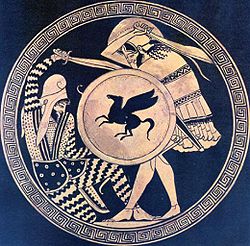
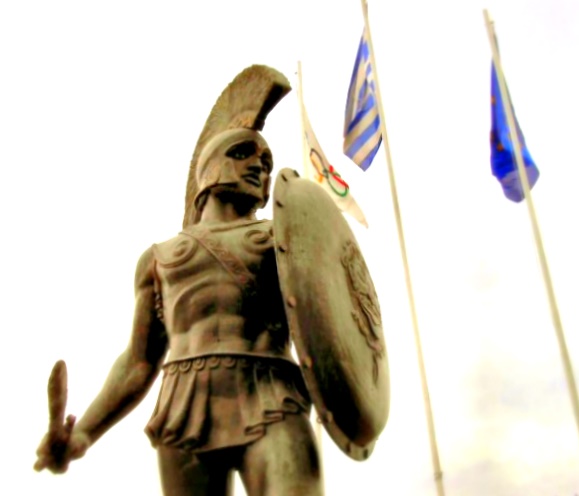

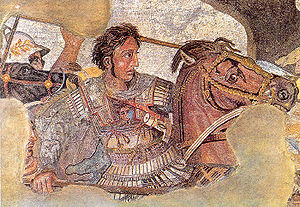
Political Society
Initially many Greek city states seem to have been petty kingdoms. By the Archaic period most had already become aristocratic oligarchies and the kingship had been reduced to a hereditary, life-long chief magistracy. Inevitably, the domination of politics and concomitant aggregation of wealth by small groups of families was apt to cause social unrest in many poleis. In many cities a tyrant (not in the modern sense of repressive autocracies), would at some point seize control and govern according to their own will. Athens fell under a tyranny in the second half of the 6th century. When this tyranny was ended, the Athenians founded the world's first democracy as a radical solution to prevent the aristocracy regaining power. A citizens' assembly (the Ecclesia), for the discussion of city policy, had existed since the reforms of Draco in 621 BC; all citizens were permitted to attend after the reforms of Solon (early 6th century). With the establishment of the democracy, the assembly became the de jure mechanism of government.
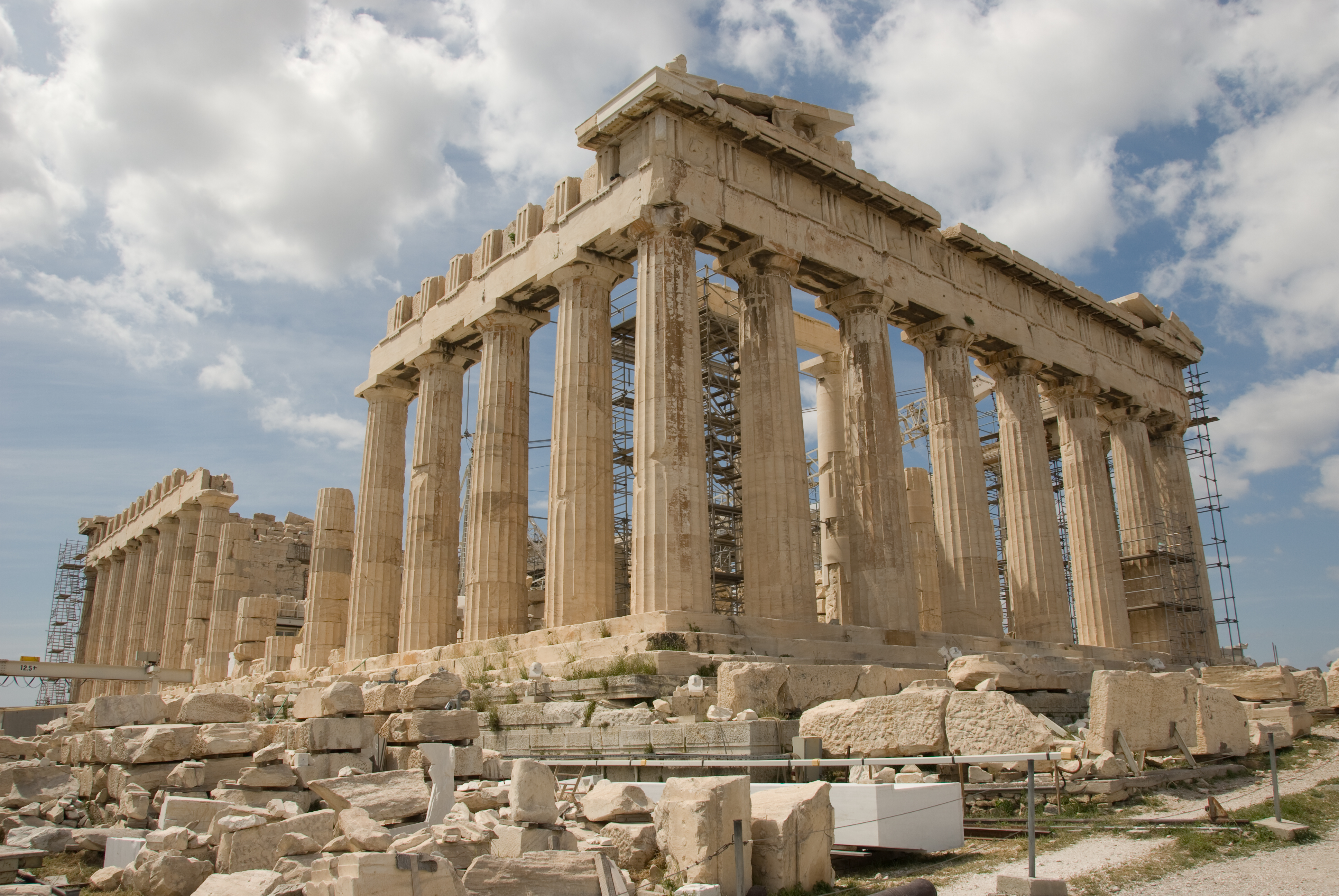
Culture
Ancient Greek philosophy focused on the role of reason and inquiry. In many ways, it had an important influence on modern philosophy, as well as modern science.
Ancient Greek society placed considerable emphasis upon literature. Many authors consider the western literary tradition to have begun with the epic poems The Iliad and The Odyssey, which remain giants in the literary canon for their skillful and vivid depictions of war and peace, honor and disgrace, love and hatred. Notable among later Greek poets was Sappho, who defined, in many ways, lyric poetry as a genre. A playwright named Aeschylus changed Western literature forever when he introduced the ideas of dialogue and interacting characters to playwriting. In doing so, he essentially invented "drama". Other refiners of playwriting were Sophocles and Euripides. Philosophy entered literature in the dialogues of Plato, who converted the give and take of Socratic questioning into written form. Aristotle, Plato's student, wrote dozens of works on many scientific disciplines.
Ancient Greece mathematics contributed many important developments to the field of mathematics, including the basic rules of geometry, the idea of formal mathematical proof, and discoveries in number theory, mathematical analysis, applied mathematics. The discoveries of several Greek mathematicians, including Pythagoras, Euclid, and Archimedes, are still used in mathematical teaching today. The Greeks developed astronomy, which they treated as a branch of mathematics, to a highly sophisticated level. The Antikythera mechanism, a device for calculating the movements of planets, dates from about 80 B.C., and was the first ancestor of the astronomical computer. The ancient Greeks also made important discoveries in the medical field. Hippocrates was a physician of the Classical period, and is considered one of the most outstanding figures in the history of medicine. He is referred to as the "father of medicine" in recognition of his lasting contributions to the field as the founder of the Hippocratic school of medicine.
The art of ancient Greece has exercised an enormous influence on the culture of many countries from ancient times until the present, particularly in the areas of sculpture and architecture. The civilization of Ancient Greece has been immensely influential on language, politics, educational systems, philosophy, science, and the arts. In the West, the art of the Roman Empire was largely derived from Greek models. Via the Roman Empire, Greek culture came to be foundational to Western culture in general.

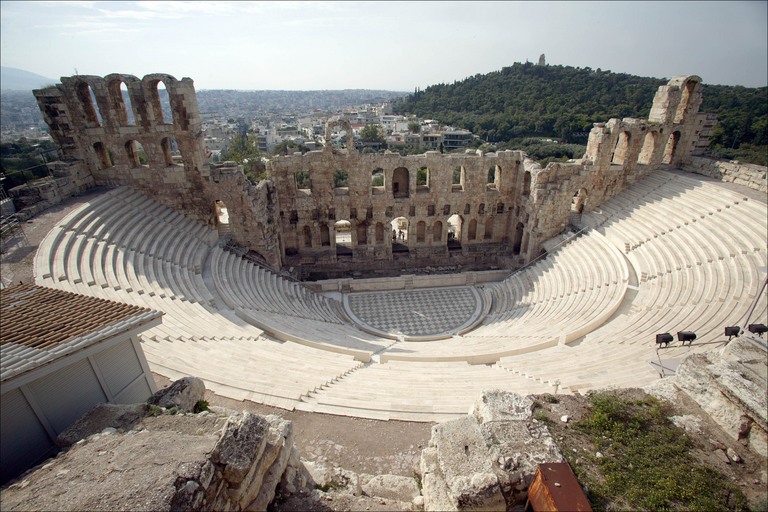
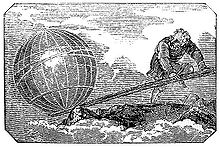
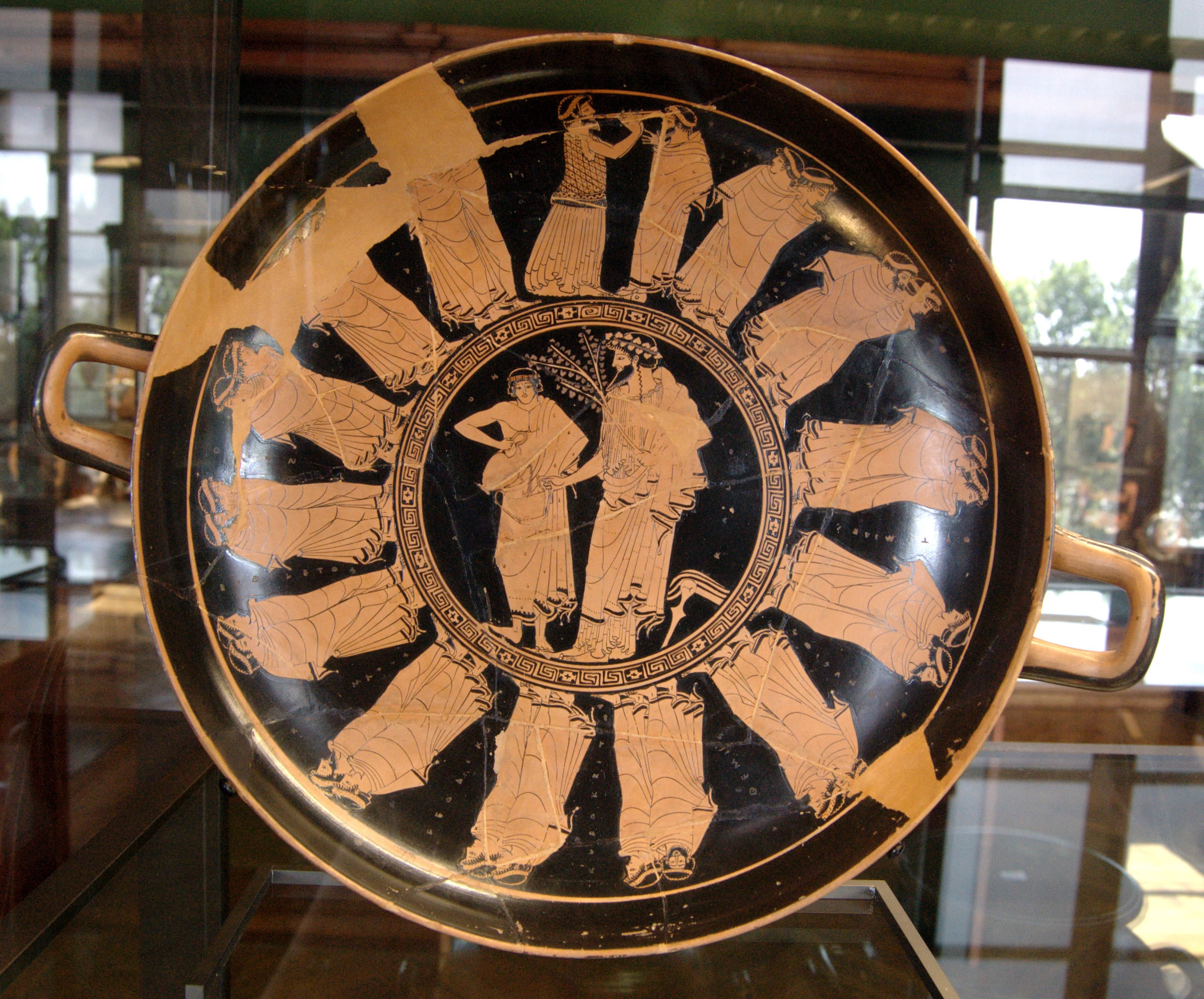
Olympic Games
The Olympic Games were a series of athletic competitions held for representatives of various city-states of Ancient Greece held in honor of Zeus. The exact origins of the Games are shrouded in myth and legend but records indicate that they began in 776 BC in Olympia in Greece. They were celebrated until 393 AD when they were suppressed by Theodosius I as part of the campaign to impose Christianity as a state religion. The Games were usually held every four years, or olympiad, as the unit of time came to be known. During a celebration of the Games, an Olympic Truce was enacted so that athletes could travel from their countries to the Games in safety. The prizes for the victors were olive wreaths or crowns.
